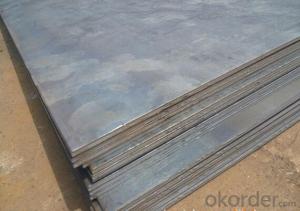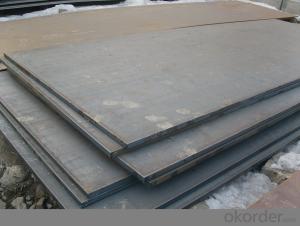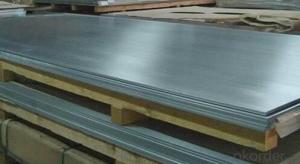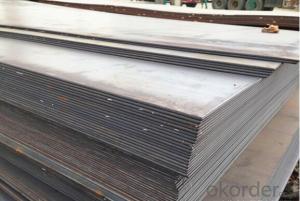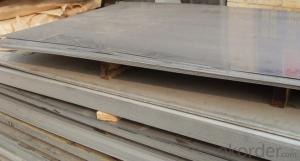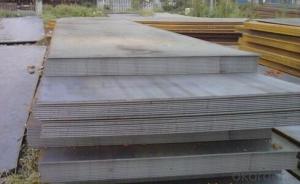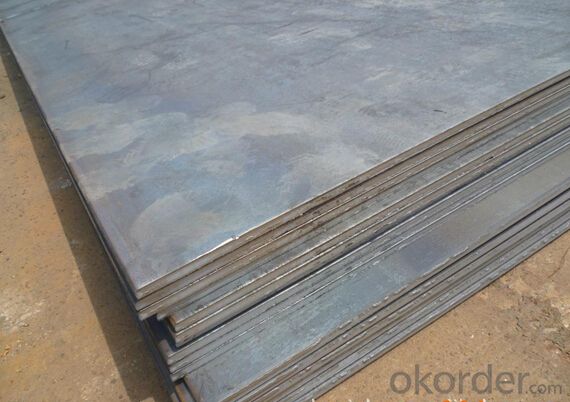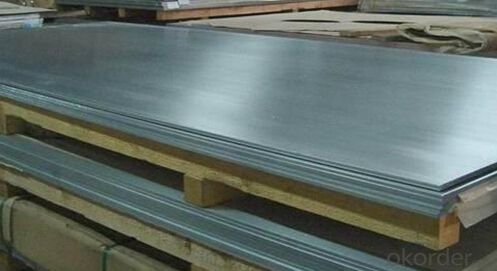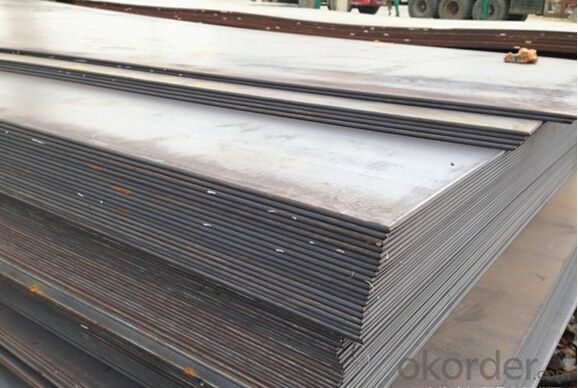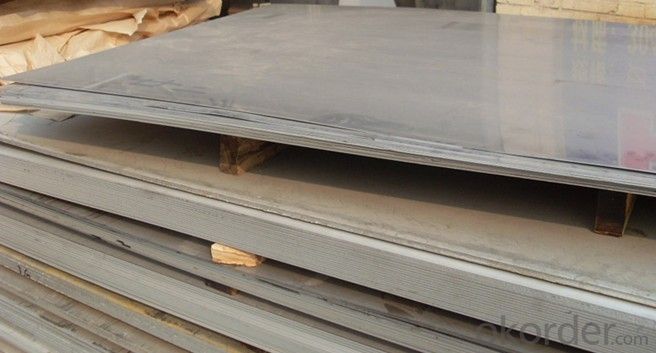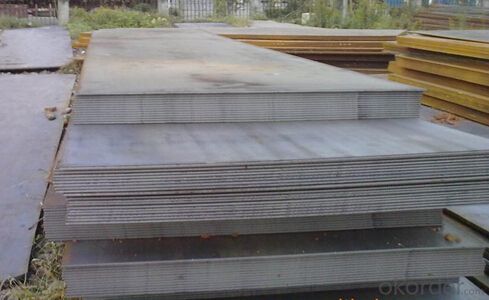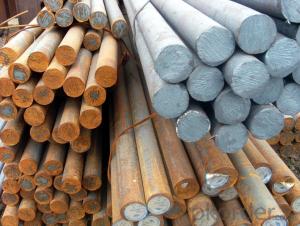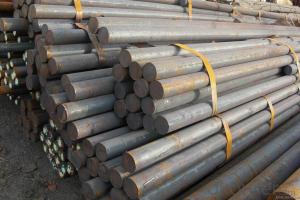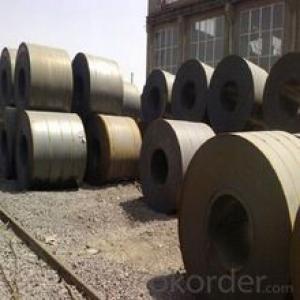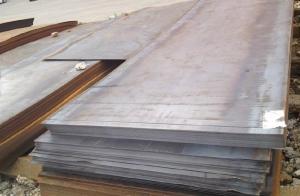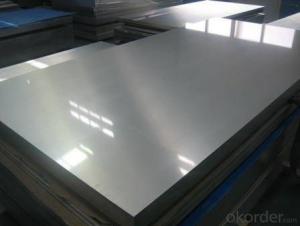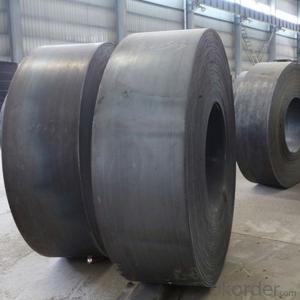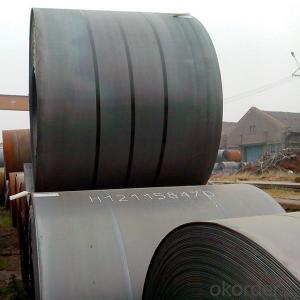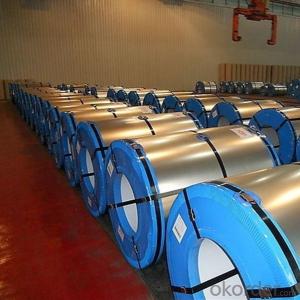SPHC SS400 HR Hot Rolled Steel Coil/Sheet
- Loading Port:
- Tianjin
- Payment Terms:
- TT OR LC
- Min Order Qty:
- 3 m.t.
- Supply Capability:
- 100000 m.t./month
OKorder Service Pledge
OKorder Financial Service
You Might Also Like
Specification
SPHC SS400 HR Hot Rolled Steel Coil/Sheet
Detailed Information of SPHC SS400 HR Hot Rolled Steel Coil/Sheet
| C | Si | P | S | yield Strength MAp | Tensile strength MAp | Elongation % | ||
| A36 | 0.24 | 0.4 | 0.045 | 0.03 | 250 | 400-520 | 26 | |
| C | Si | Mn | P | S | Cu | |||
| A283 | ≤0.27 | 0.15-0.4 | ≤0.9 | ≤0.035 | ≤0.04 | ≥0.2 | ||
| Thickness: | 6mm, 8mm, 12mm, 16mm, 20mm, 25mm, 30mm, 50mm, 80mm, 100mm, 150mm, 200mm | |||||||
| Width: | 1500mm, 1800mm, 2000mm, 2200mm, 2500mm | |||||||
| Length: | 6000mm, 8000m, can cut to width and length | |||||||
| Packing Details; | according to customer‘s require or export’s standard | |||||||
| Delivery time; | 7 days for stock sizes, 20-25 days for new production sizes | |||||||
| Port: | Tianjin China | |||||||
Related Products Overviews of SPHC SS400 HR Hot Rolled Steel Coil/Sheet
Product Name | Typical Grades | Diameter(mm) | Standard Adopted |
Carbon Steel | 20 (1020/S20C/C22) |
Ø16-Ø300 |
GB/SAE/ JIS/DIN |
40 (1040/S40C/C40) | |||
45 (1045/S45C/C45) | |||
Bearing Steel | GCr9 (51100/SUJ1) |
Ø12-Ø250 | |
GCr15 (52100/SUJ2/100Gr6) | |||
GCr9SiMn (A485-Gr.1/SUJ3) | |||
Cr-Mo Steel | 20Cr (5120/SCr420H/20Cr4) |
Ø12-Ø250 | |
40Cr (5140/SCr440/41Cr4) | |||
42CrMo(4140/SCM440/42CrMo4) | |||
Gear Steel | 20CrNiMo |
Ø16-Ø600 | |
20CrMn(5115/SMnC420/20MnCr5) | |||
20CrNiMo(8620/SNCM220/20CrMiMo2) |
Related Products Application of SPHC SS400 HR Hot Rolled Steel Coil/Sheet
Carbon Steel | l Mold bottom l Plastic mold l Construction machinery parts l Automobile parts l Security grills l Screens l Construction |
Bearing Steel | l Aerospace l Navigation l Nuclear energy l Chemical industry l Electronic information l Petrochemical l Instrument and meter l Transportation |
Cr-Mo Steel | l Mechanism & Fasteners gear l Stressed components for vehicles l Engines and machines l Parts of larger cross-section |
Gear Steel | l All kinds of gears l Statically and dynamically stressed component for vehicles l Engines and machine l Larger cross-section parts l Crankshafts |
Company Introduction of SPHC SS400 HR Hot Rolled Steel Coil/Sheet
CNBM International Corporation is the most import and export platform of CNBM group(China National Building Material Group Corporation) ,which is a state-owned enterprise, ranked in 270th of Fortune Global 500 in 2015.
With its advantages, CNBM International are mainly concentrate on Cement, Glass, Iron and Steel, Ceramics industries and devotes herself for supplying high quality series of refractories as well as technical consultancies and logistics solution.
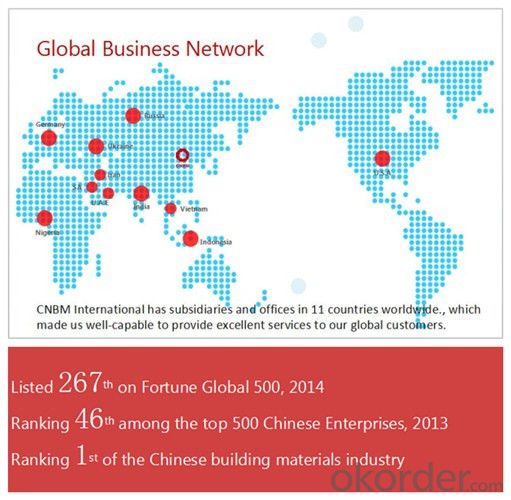
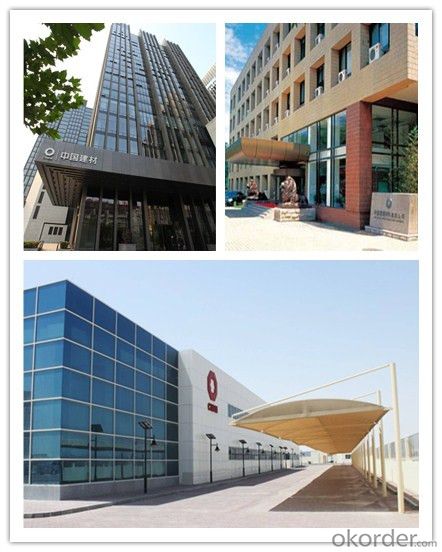
After-sale service | l CNBM provides the services and support you need for every step of our cooperation. We’re the business partners you can trust; you can relax and get on with doing business. l For any problem, please kindly contact us at any your convenient time, we’ll reply you in our first priority within 24 hours
|
Advantages
| l Industry experience over 20 years. l Shipment of goods -More than 70 countries worldwide. l The most convenient transport and prompt delivery. l Competitive price with best service. l High technical production line with top quality products. l High reputation based on best quality products.
|
Packaging & Delivery of SPHC SS400 HR Hot Rolled Steel Coil/Sheet
Packaging Detail | Sea worthy packing /as per customer's packing instruction |
Delivery Detail | 15 ~ 40 days after receiving the deposit |
Products Show
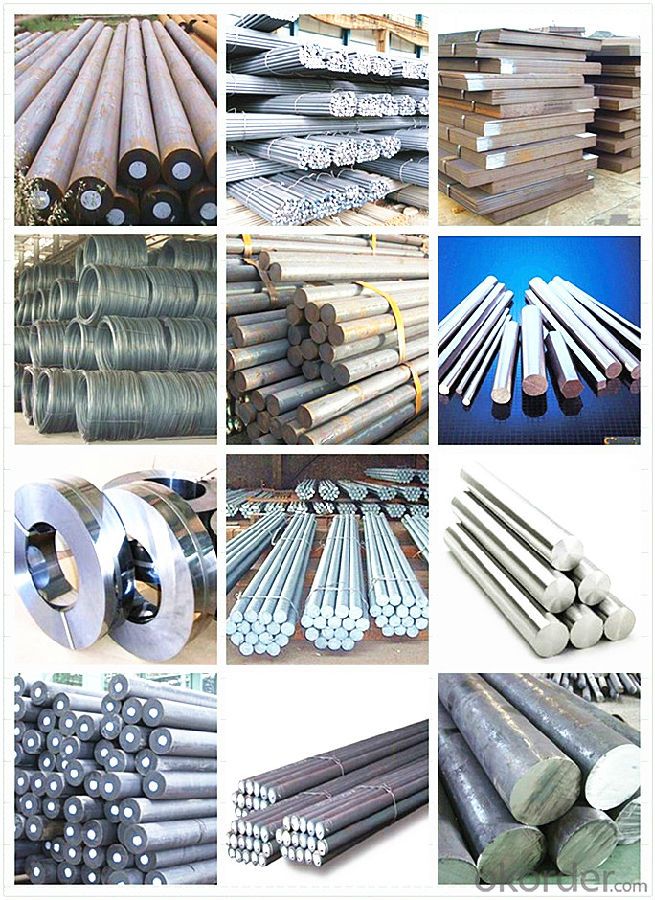
FAQ:
Are you a trading company or manufacturer? | Manufacturer |
What’s the MOQ? | 3 metric ton |
What’s your delivery time? | 15-35 days after downpayment received |
Do you Accept OEM service? | Yes |
what’s your delivery terms? | FOB/CFR/CIF |
What's the Payment Terms? | 30% as deposit,70% before shipment by T/T |
Western Union acceptable for small amount. | |
L/C acceptable for large amount. | |
Scrow ,Paybal,Alipay are also ok | |
Why choose us? | Chose happens because of quality, then price, We can give you both. Additionally, we can also offer professional products inquiry, products knowledge train (for agents), smooth goods delivery, excellent customer solution proposals. |
What's your available port of Shipment? | Main Port, China |
What’s your featured services? | Our service formula: good quality+ good price+ good service=customer's trust
|
Where are your Market? | Covering more than 160 countries in the world |
- Q: What are the factors that affect the corrosion resistance of special steel?
- The factors that affect the corrosion resistance of special steel include the composition and content of alloying elements, surface finish and treatment, environmental conditions such as temperature, humidity, and exposure to chemicals, as well as the presence of protective coatings or inhibitors. Additionally, the manufacturing process and heat treatment can also influence the corrosion resistance of special steel.
- Q: How is precipitation-hardening steel used in aerospace applications?
- Precipitation-hardening steel is used in aerospace applications due to its excellent strength-to-weight ratio, corrosion resistance, and high temperature endurance. It is commonly used to manufacture various components like aircraft landing gear, engine parts, and structural elements. The steel's ability to be heat treated and aged to enhance its mechanical properties makes it ideal for aerospace applications, where strength, durability, and lightweight materials are crucial for safe and efficient flight operations.
- Q: Can special steel be used for making power generation equipment?
- Indeed, power generation equipment can be constructed using special steel. Specifically engineered to possess enhanced characteristics like high strength, resistance to corrosion, heat, and wear, special steels are well-suited for use in arduous situations such as power generation equipment that often operates under conditions of elevated temperatures and pressures. Power generation equipment, including turbines, boilers, and generators, necessitates materials capable of enduring harsh operational circumstances and delivering dependable performance over an extended duration. Special steel grades, such as stainless steels, nickel-based alloys, and heat-resistant steels, are commonly employed in the construction of power plants and power generation equipment. Stainless steels are frequently utilized in power generation due to their exceptional resistance to corrosion, which is vital for equipment exposed to significant moisture or hostile environments. Nickel-based alloys are renowned for their outstanding strength at high temperatures, making them well-suited for components subjected to extreme heat, such as turbine blades or exhaust systems. On the contrary, heat-resistant steels are specifically designed to retain their mechanical properties at elevated temperatures, rendering them suitable for applications like boilers and heat exchangers. In conclusion, special steel possesses a variety of desirable properties that render it highly suitable for the production of power generation equipment. Its strength, corrosion resistance, heat resistance, and wear resistance make it an excellent choice for enduring the challenging conditions encountered in power plants, ensuring the efficient and reliable generation of electricity.
- Q: How is special steel used in the production of precision tools?
- Special steel is used in the production of precision tools due to its unique properties such as high strength, durability, and resistance to corrosion. This steel is carefully engineered and manufactured to meet specific requirements, enabling the production of precise and reliable tools. The use of special steel in precision tool manufacturing ensures that these tools can withstand heavy usage, maintain their sharpness, and provide accurate results, making them crucial for various industries such as automotive, aerospace, and engineering.
- Q: Can special steel be used for cutting tools?
- Yes, special steel can be used for cutting tools. Special steel, such as high-speed steel or tool steel, is specifically designed to have superior hardness, strength, and toughness, making it ideal for cutting applications. These steels can retain their sharpness and withstand high temperatures and mechanical stress, resulting in efficient and durable cutting tools.
- Q: What are the challenges in casting special steel?
- One of the challenges in casting special steel is the high melting point of the material. Special steels often have a higher carbon content or alloying elements, which increases their melting point. This requires the use of specialized furnaces and techniques to reach and maintain the necessary temperature for casting. Additionally, special steels can be prone to defects such as porosity, inclusions, and segregation during the casting process. These defects can negatively impact the mechanical properties and overall quality of the steel, making it difficult to achieve the desired specifications. Therefore, strict control over the casting conditions, including temperature, mold design, and pouring techniques, is crucial to overcome these challenges and produce high-quality special steel castings.
- Q: What are the applications of special steel in the nuclear industry?
- Special steel is extensively used in the nuclear industry due to its exceptional properties. It is primarily employed in the construction of reactor vessels, containment structures, and fuel storage systems. Its high strength, corrosion resistance, and ability to withstand extreme temperatures make it an ideal material for these critical components. Additionally, special steel is also utilized in the production of nuclear fuel rods, shielding materials, and various other components that require excellent mechanical properties and resistance to radiation damage.
- Q: Can special steel be used in renewable energy applications?
- Yes, special steel can be used in renewable energy applications. Special steel alloys such as stainless steel and high-strength low-alloy (HSLA) steel are commonly used in the manufacturing of wind turbines, solar panels, and hydroelectric power systems. These alloys offer excellent corrosion resistance, high strength, and durability, making them ideal for withstanding harsh environmental conditions and ensuring long-term performance in renewable energy applications.
- Q: Can special steel be used in the electronics industry?
- Yes, special steel can be used in the electronics industry. It is commonly used for various components such as connectors, springs, and contacts due to its high strength, corrosion resistance, and electrical conductivity properties.
- Q: What are the common techniques for testing the quality of special steel?
- Some common techniques for testing the quality of special steel include chemical analysis, mechanical testing, non-destructive testing, and metallography. Chemical analysis involves examining the composition of the steel to ensure it meets the required specifications. Mechanical testing involves subjecting the steel to various forces and measuring its strength, hardness, and other mechanical properties. Non-destructive testing methods such as ultrasound, radiography, and magnetic particle inspection are used to detect any defects or flaws in the steel without causing damage. Metallography involves examining the microstructure of the steel under a microscope to assess its grain size, inclusion content, and overall quality. These techniques help ensure that special steel meets the necessary standards and requirements.
Send your message to us
SPHC SS400 HR Hot Rolled Steel Coil/Sheet
- Loading Port:
- Tianjin
- Payment Terms:
- TT OR LC
- Min Order Qty:
- 3 m.t.
- Supply Capability:
- 100000 m.t./month
OKorder Service Pledge
OKorder Financial Service
Similar products
Hot products
Hot Searches
Related keywords
